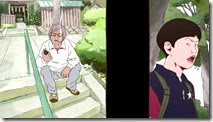 |
 |
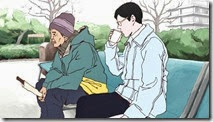 |
An awful lot of puzzle pieces were slotted into place this week.
Among the many things I admire about Ping Pong, foremost is that it’s simply a marvel of good writing. This is an extremely busy story – it pinballs (or ping pongs, if you prefer) from character to character and storyline to storyline at a dizzying rate, and throws a ton of information at you every week. It’s going to fit a tremendous amount of plot and character development into a mere eleven episode. Yet I never have any trouble following what’s going on, and it never feels rushed or capricious in its dealings. Between Matsumoto Taiyou’s writing and Yuasa-sensei’s direction, Ping Pong remains perfectly coherent despite its density of content.
It’s been nagging at me for a while, but it finally hit me this week – structurally speaking, Ping Pong is laid out very much like a boxing story. Both the character types and the general motif of the series owe a lot to boxing, both of the manga and Hollywood variety. Hell, there’s even a striking continuity between the scenes of players in a packed gym hammering the ball across the table and a gym full of boxers hammering speed bags. Kids running up stairs as cigarette-huffing old-timer trainers alternately encourage and harangue them – it could be straight out of a boxing movie from any era. It’s a bit of a jump for Western minds to see table tennis as that sort of brutal, savagely aggressive sport – but that’s how it’s presented here, with complete conviction.
It’s striking how, at least superficially, Smile and Peco have switched places in terms of their role in the story. Smile is the bully of the tables, the big dog, and Peco (who was truthfully always a bit of a Chihuahua with a big dog’s bark) is now the plucky underdog working his way up to challenge him. Meanwhile Wenge shows signs of a renewed interest in re-claiming some of his lost luster as a player, and the generational aspect of the story grows ever more complex even as previously hidden truths reveal the way it all fits together.
The theme of heroes has been a major component of Ping Pong since the beginning, and it’s finding its way into places in the story it hadn’t been before. There’s the revelation that the coach of the Kaio team (Yurie’s father) considered Koizumi a hero – except he refers to him as “Butterfly Jo” (you could hardly ask for a more distinctly boxing nickname than that). And he worries for Ryuuichi the Dragon that the boy has no one he looks to as a hero. The dysfunction in the Kazama family seems deeper every time we’re allowed to look at – Ryuuichi’s father died young after bringing shame on the family, and his close relations were always treated as dirt as a result. That is until Dragon showed great potential for table tennis, and the patriarch – who’d been leading the charge – took him under his wing. Meanwhile Yurie continues her futile pining for Dragon’s attention, prompting his teammate Sanada to throw up his hands in disgust and use the occasion of Valentine’s Day to make a play for her openly (well, behind his back). It’s hard to see any scenario where this ends well.
As this is happening, Koizumi has apparently tried to pass Smile off to Kaio – inviting Dragon, the coach and a small contingent to Katase to make another sales pitch. It becomes clear that Smile (whose parents are divorced and effectively non-existent in his life) feels a personal attachment to Koizumi at this point. “Even I have feelings” he protests before running off and disappearing for a day in protest. When he returns he finally comes right out and asks Butterfly Jo to tell his story, and it’s a good one. Koizumi earned that nickname with his ethereal grace at the table, which earned him a presumed spot as Japan’s national representative at the World Championships. But that all went awry in the final qualifying match, against an old friend who was playing against his doctor’s advise that his knee was badly injured and unless he had surgery and six months of rest, his career might be over. Rather than implement a strategy to easily dispose of the injured opponent (who he could have beaten even at full-strength) Butterfly Jo played to his friend’s forehand all day and lost – and that friend went on to become a folk hero and ping pong legend. And the head of Poseidon as well – of course it’s Kazama Ryo, Dragon’s grandfather and the founder of Kaio.
“Could you have done it? Used a strategy that might end a friend’s career?” Koizumi asks Smile, and while we never get his answer the irony is thick enough to cut with a knife. Butterfly Jo insists he’s not using Smile as a tool for revenge, merely trying to “show him a place only geniuses can go”, and Smile believes him. Do I? Should I? Those are not simple questions to answer, because Koizumi – like everyone in this cast – is a complicated person. Obaba has scolded her old friend that if he’s not willing to shower Smile with love (which I suppose is the reason behind the “date” he takes his student on) he shouldn’t bother trying to coach him, and I think this is the old lady trying to help the one of “her” children that’s out of her reach for the moment. It’s a testament to how lonely Smile is that he’s bonded to Koizumi with such emotional intensity despite being exploited (sorry, but it’s true) so from Obaba or otherwise, he needs all the adults looking out for him that he can get.
All this ties is quite neatly with Peco’s story. He’s the one running up the steps of the Benten Shrine on Enoshima, something he does for three days (complete with puking) before he can finally do so in one minute – Obaba’s requirement before she’ll allow him to pick up the paddle. When she does, it’s at the National Training Center – where it so happens the coach is her son. She passes Peco off to him, though it’s quite clear she intends to assert herself when she feels necessary in making sure her son trains Peco the way she’d want him trained. For all the mockery in their constant declarations of love, it’s clear that Obaba and Peco actually do love each other, though unlike Smile Peco actually has a mother who cares about him, who – along with a house full of little brothers – shares Peco’s distinctive facial features (and temperament, it seems).
I’ve certainly come full circle on Peco, who I didn’t have much patience for at the start of the series. A little humility has done him a world of good, and he seems to have retained an essence of himself through his training in a way Smile has not. These two seem fated to meet, and the hints that Peco has a knee injury suggest an even neater full-circle nature to their story and Koizumi’s. Meanwhile, the other fated rivals may just be Dragon and China – the latter of whom is still helping his teammates like a true leader, but has now begun the slow process of trying to believe in himself as a player again. When he’s facing off against the ping pong machine his coach has bought for him, it’s Kazama Ryuuichi’s face he sees across the table. Both these potential heavyweight clashes carry the sort of anticipation that’s only possible in a sports series that really helps you understand the characters and care about them before anything else, and that’s a big part of the reason why Ping Pong is the gem that it is.
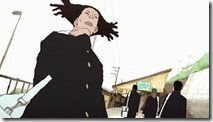 |
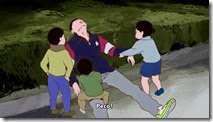 |
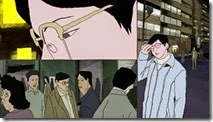 |
 |
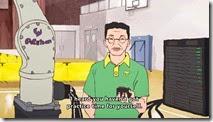 |
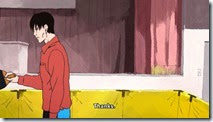 |
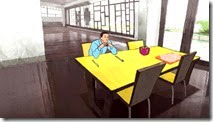 |
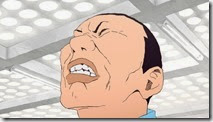 |
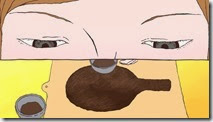 |
 |
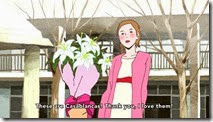 |
 |
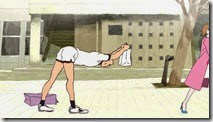 |
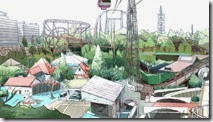 |
 |
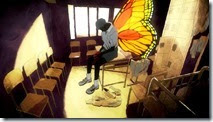 |
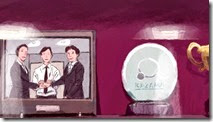 |
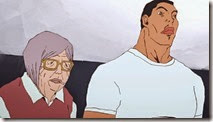 |
 |
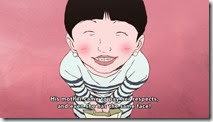 |
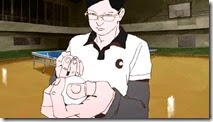 |
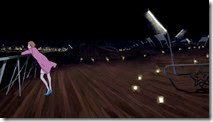 |
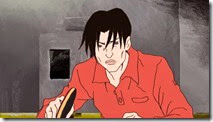 |
 |


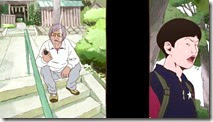
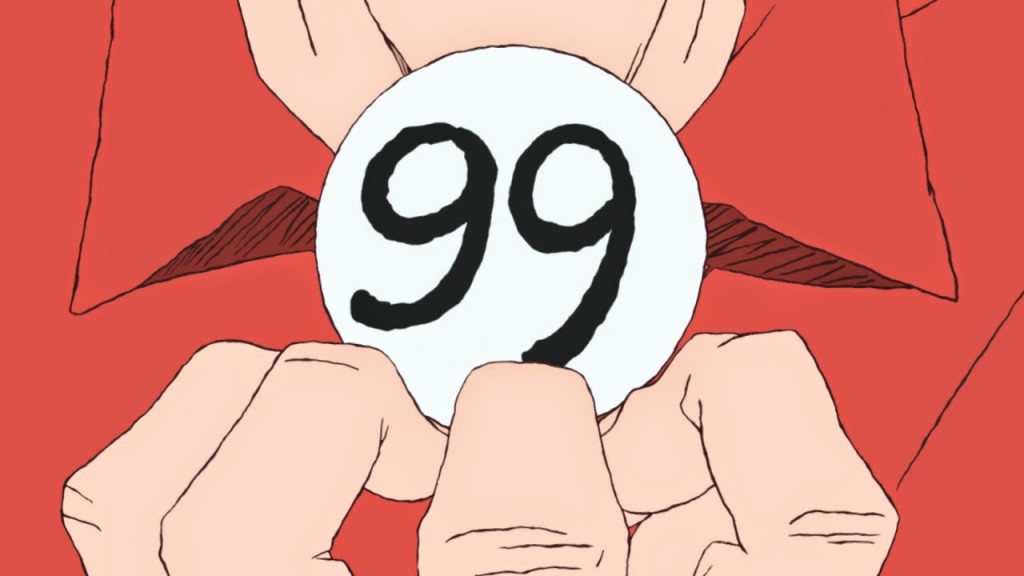
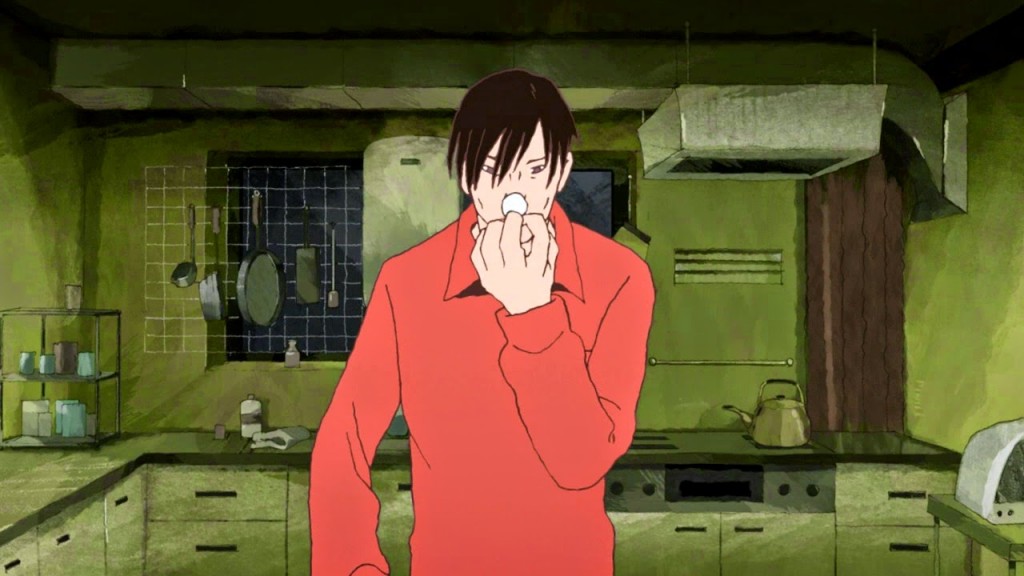
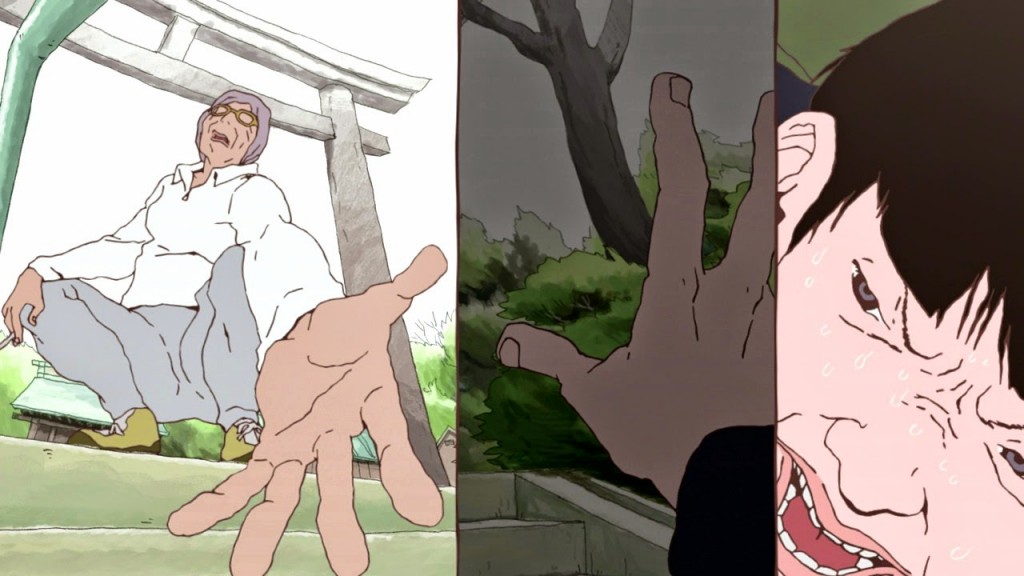
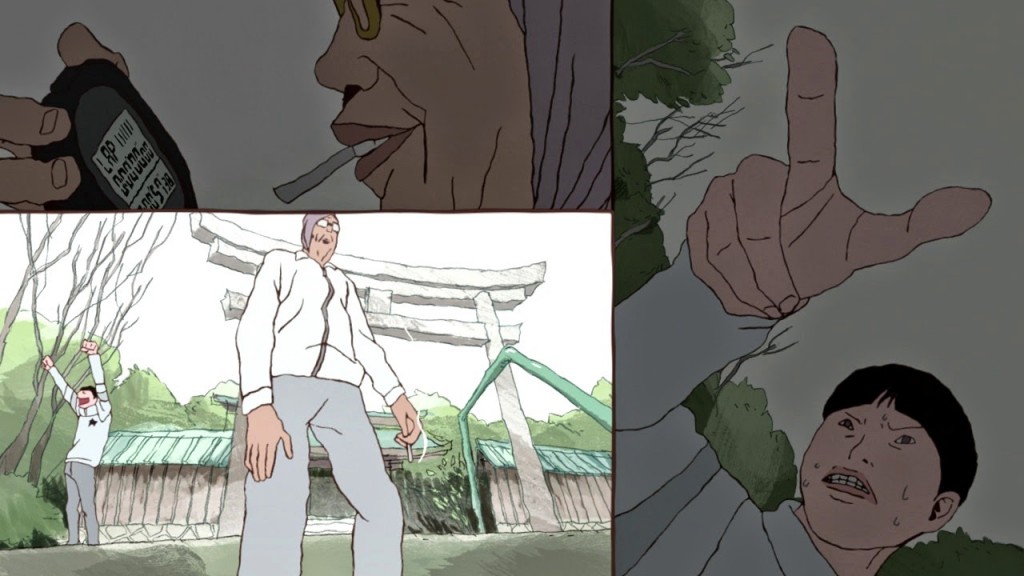
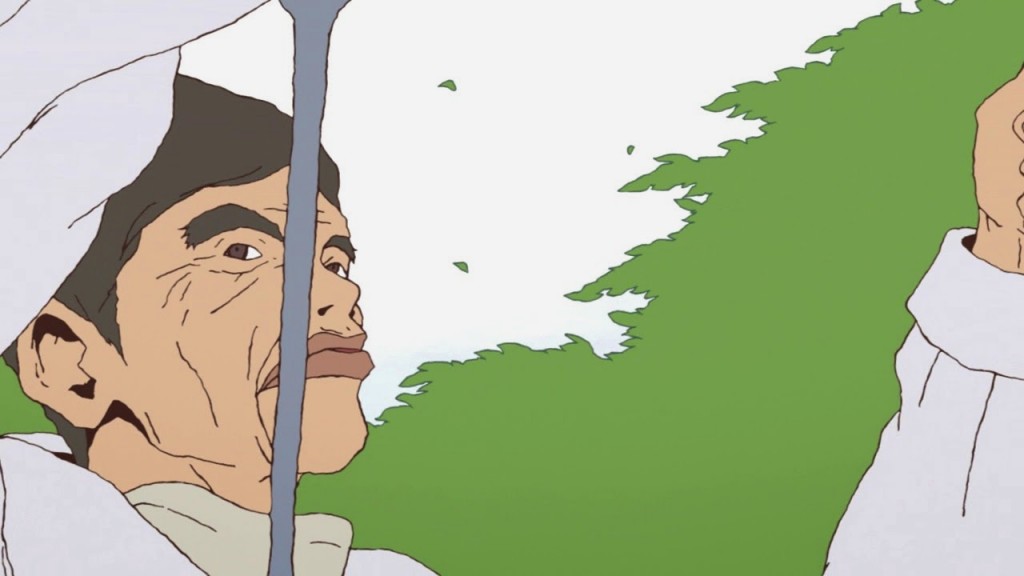
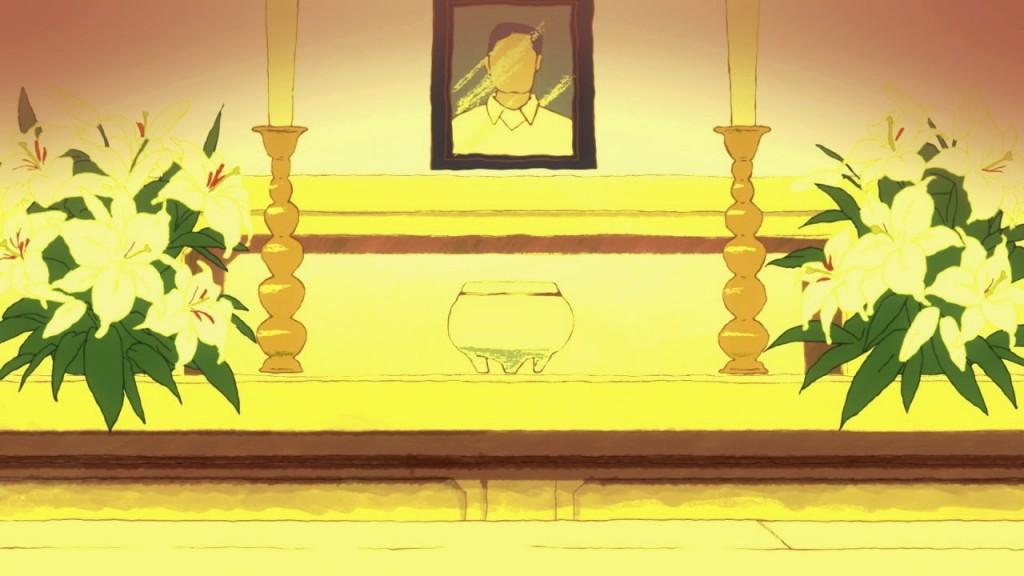
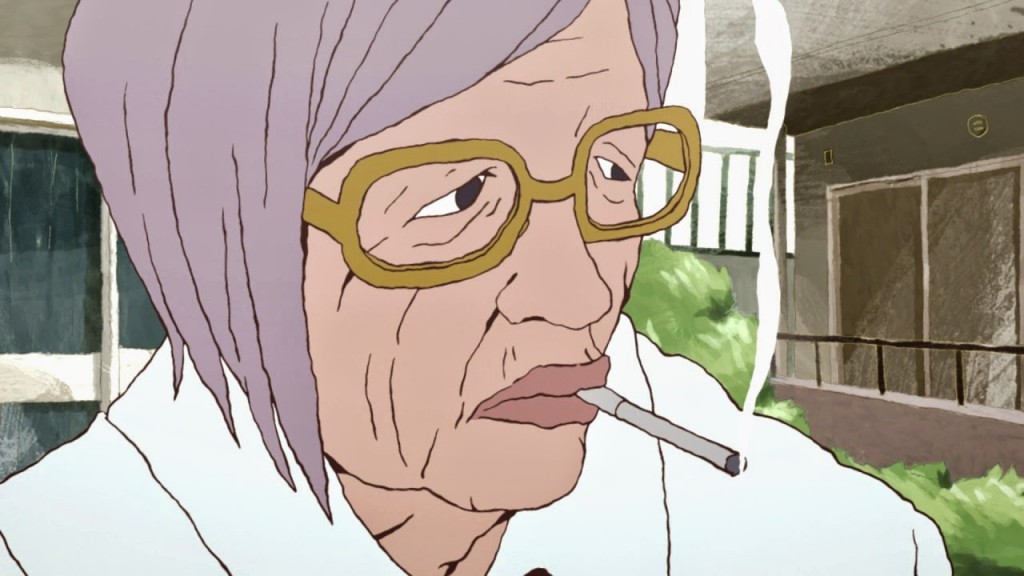
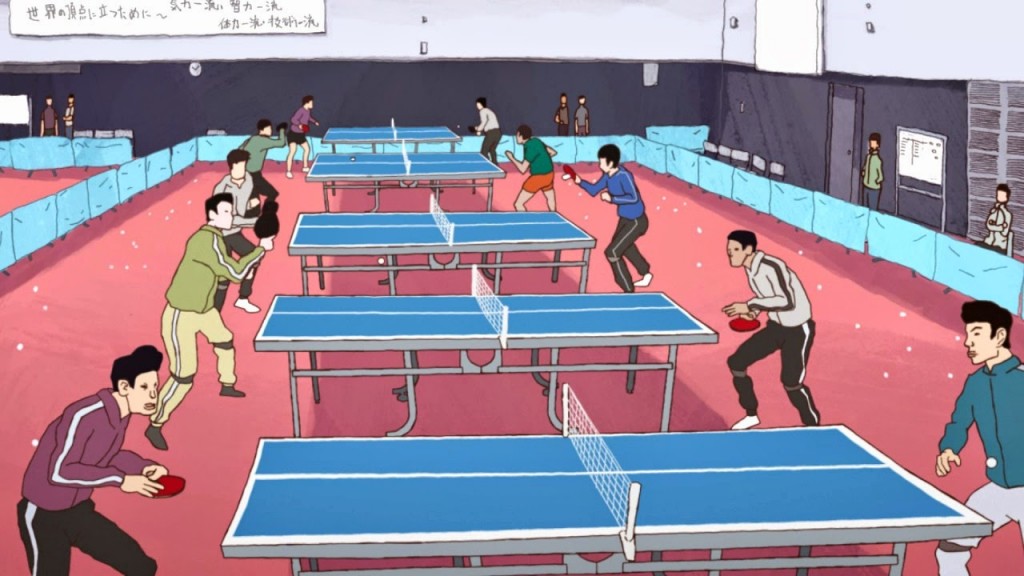


Antony Shepherd
May 23, 2014 at 9:57 amI'm wondering if Peco's knee bandage is a red herring – a little bit of misdirection tied neatly to Koizumi's back story.
admin
May 23, 2014 at 10:04 amI kind of hope so, to be honest.
GlassShadow
May 24, 2014 at 6:58 pmYeah I hope so too, otherwise it would seem heavy-handed narratively.
pjg
May 23, 2014 at 1:16 pmWhy do you say that Smile's been exploited by Koizumi? It doesn't seem so clear to me, which is part of what I love about this anime.
I also hope the knee bandage is a red herring because I would hate for history to be so neatly repeated.
admin
May 23, 2014 at 2:02 pmThat's how I see it. It may be well-intentioned on some level, but it seems clear to me that Koizumi is indeed doing what he denies doing – if not using Smile to exact his revenge, then trying to live vicariously through him. I think the emotional attachment Smile is feeling is something akin to Stockholm Syndrome at this point – plus, he's just so desperate for any attention from an adult that he takes whatever he can get. Smile certainly isn't being made happy by what's happening here.
Nadavu
May 23, 2014 at 9:20 pmapropos of nothing, still can't get this song out of my head
https://www.youtube.com/watch?v=Z3xusvhtLfY
GlassShadow
May 24, 2014 at 7:04 pmI sense this is a calm before the storm episode where everyone settles into their role. The dynamic between our four main players is very fascinating indeed, I can't wait for their rackets to cross again.
Hangman
May 30, 2014 at 5:41 amGotta say, Ping Pong is the ugliest BUT more importantly best sports show I've seen since Ippo. The story, characters and directing is faultless. There's a real edge to it. "Savagely aggressive" presentation akin to a boxing classics works for me! Loved the "Butterfly Jo" moniker for Koizumi. One of my favorite characters this year.